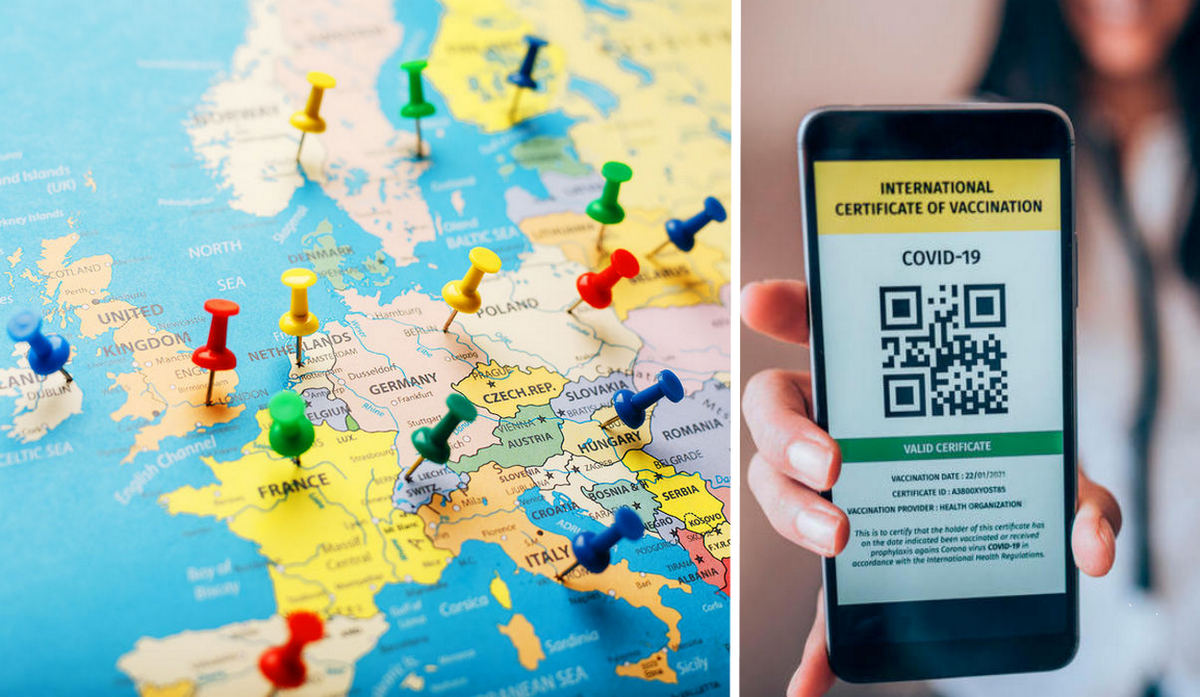Although the coronavirus situation has improved significantly and vaccination rates continue to rise, travel restrictions remain in most EU countries. However, these are not the harsh measures taken in the early stages of the pandemic. And only 6 countries lifted anti-violence measures when crossing the border.
Many European countries still maintain the traffic light system and approach the issue of admitting tourists to the bloc countries for geographical reasons.
Here is a list of countries that still require travelers entering from abroad to present a certificate of vaccination, recovery or testing at entry. There are only 24 of them.
- Austria
- Belgium
- Bulgaria
- Germany
- Greece
- Denmark
- Spain
- Italy
- Cyprus
- Latvia
- Lithuania
- Luxembourg
- Malta
- Netherlands
- Poland
- Portugal
- Slovakia
- Finland
- France
- Croatia
- Czech Republic
- Switzerland: not a member of the EU, but associated with Schengen and also taking anti-entry measures.
- Sweden
- Estonia
Germany, Portugal and Poland are among the countries that apply different anti-discrimination rules to non-EU tourists. On the other hand, other countries, such as Austria, Switzerland, Denmark and Finland, do not discriminate and apply the same rules to all travelers.
As a rule, all EU / Schengen countries allow unrestricted entry for all tourists who have received a valid vaccination certificate. Each state in the bloc has the right to set its own rules on the validity of vaccination passes. However, most of them accept all vaccination certificates proving that their owner has completed the primary vaccination with one of the approved doses of vaccine within the last 270 days. Those who have been revaccinated are also allowed unrestricted entry into the EU / Schengen area.
EU countries also allow entry to travelers who have fallen ill with covid during the last 180 days. In addition, when traveling to the EU, tourists can take a negative test for COVID-19 – it will be accepted if it is issued only by a Member State. This means that in most cases, tourists coming from third countries will not be able to enter only after a laboratory test, they need to have a certificate of vaccination or recovery to be exempt from additional entry rules.
However, there are some exceptions:
- Austria allows any traveler to enter. To do this, you must show one of three documents: a negative PCR test not older than 72 hours, a certificate of vaccination or confirmation of infection. Thus, like EU citizens, travelers from third countries can also enter Austria with a negative COVID-19 test if they do not have a valid vaccination or recovery pass.
However, only proof of vaccination or infection will be accepted for entry into any type of accommodation, restaurants, bars, nightclubs, theaters, as well as for the use of cable cars or ski lifts. A negative COVID-19 test is not enough. - Italy is one of the countries that applies the same rules to all travelers, which means that everyone can enter with only one certificate, including a negative test result regardless of the country origin.
In contrast to the above-mentioned countries, the six member states of the bloc – Iceland, Norway, Slovenia, Romania, Hungary and Ireland – have already lifted their restrictions on COVID-19. This means that travelers can now enter these countries without having to comply with any special anti-flood conditions. In addition, they are exempted from domestic activities when visiting these countries.
For those who care about a healthy lifestyle, we recommend reading: “Research has shown that three cups of coffee a day guarantee longevity.”

